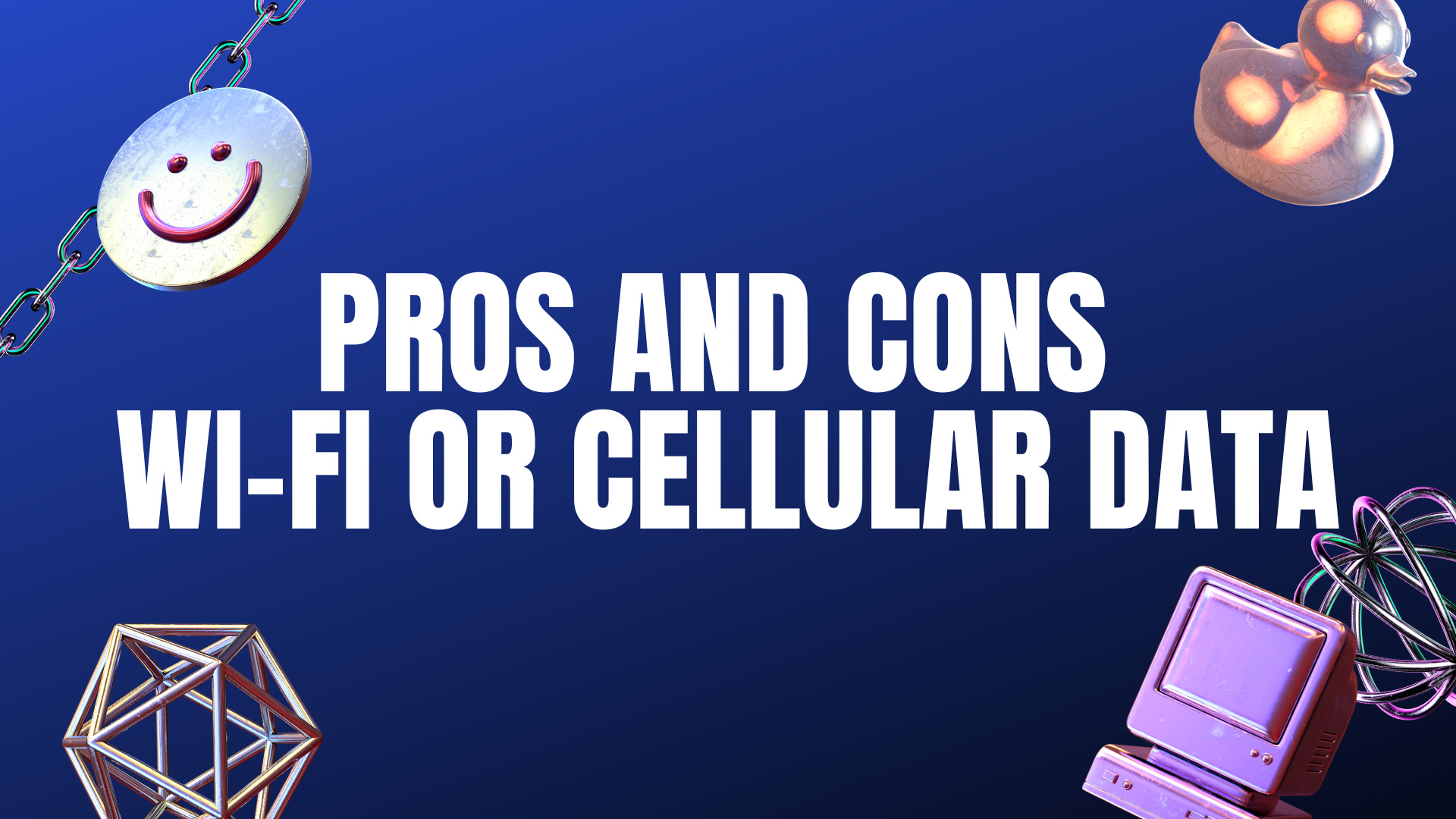Discover the Pros and Cons of Using Wi-Fi or Cellular Data for Online Tasks on Your Smartphone When using your smartphone for online tasks, you have two primary internet connection options: cellular data and Wi-Fi. Both options have advantages and disadvantages, and choosing the right one can significantly impact your online experience. In this article, […]
When using your smartphone for online tasks, you have two primary internet connection options: cellular data and Wi-Fi. Both options have advantages and disadvantages, and choosing the right one can significantly impact your online experience. In this article, we’ll explore the pros and cons of each to help you know when it’s better to use cellular data or a Wi-Fi connection.
Wi-Fi and cellular data are two different ways to connect to the internet. Wi-Fi is a wireless network that uses a router to connect your device to the internet. On the other hand, cellular data uses your phone’s cellular network to connect to the internet.
Wi-Fi Networks:
Wi-Fi networks have several benefits over cellular data. The speed of a Wi-Fi network depends on the Wi-Fi standard that the router uses. The latest Wi-Fi standard, 802.11ax, offers transfer speeds up to 9.6 Gbps. This means you can experience high-speed internet connectivity for streaming, gaming, or downloading files. Additionally, Wi-Fi is often freely available at many locations, including coffee shops, airports, and public libraries.
Cellular Networks:
Cellular data over a 4G network can transfer 100 Mbps on average, while 5G offers data speeds up to an impressive 20 Gbps. However, to experience these speeds, you need a 5G-compatible device and a cellular plan that includes 5G service. Cellular networks also have a more limited range than Wi-Fi, so you may experience connectivity issues in remote locations.

Wi-Fi is usually the better option if you have Wi-Fi or cellular data. Wi-Fi typically offers a more stable internet connection and faster data transfers and is often freely available at many locations. Additionally, you can avoid cellular data usage charges for using a lot of data.
If you have an unlimited or very large monthly data usage plan with a high data limit, you might experience faster internet speeds and service that’s just as stable as Wi-Fi. But ensure you’re confident you won’t get hit with data charges for a large amount of video streaming or gaming data.
If you keep trying to use the internet, but your mobile phone keeps using your cellular data instead of the Wi-Fi network, you may need to disable cellular data to force the phone to use Wi-Fi.
To do this on an Android, go into Settings, tap Connections, tap Data usage, and disable the toggle to the right of Mobile data.
To do this on an iPhone, go to Settings, tap Cellular (or Mobile Data), and disable the toggle to the right of Cellular Data.
Sometimes, using your cellular connection is the better (or only) choice. These include:
Generally, it’s always a good idea to use Wi-Fi whenever possible to conserve cellular data usage. But if you have an unlimited 5G cellular data plan, that would be fine.
If you’re in a location with Wi-Fi and cellular data available but prefer cellular data, you may need to turn off Wi-Fi on your phone. This is particularly true if you’ve configured your smartphone to connect automatically to that Wi-Fi network.
On Android, you can disable Wi-Fi by going to Settings, tap Connections, tap Wi-Fi, and on the Wi-Fi page, disabling the toggle at the top of the page.
On iPhone, go to Settings, tap Wi-Fi, and toggle the switch to Off on the Wi-Fi page.
By disabling Wi-Fi on your phone, you can guarantee that when you use internet-enabled apps, your phone will access the internet using cellular data.
Choosing between cellular data or Wi-Fi isn’t always easy, but a simple rule is to go with the option with the lowest cost for the best quality connection. Usually, if Wi-Fi is available, that’ll be the best option. Of course, there’s always the case where you may have an unlimited 5G cellular data plan, which would be fine for you.
In summary, whether to use Wi-Fi or cellular data depends on your situation and needs. Wi-Fi is generally the better option, but it may not be available or reliable in all situations. Cellular data can provide a faster connection in some situations but comes with additional costs and a limited range.
If you’re on a limited data plan, using Wi-Fi whenever possible is important to avoid exceeding your data limit and incurring additional charges. You can also turn off cellular data when you don’t need it to conserve data and battery life.
By understanding the differences between cellular data and Wi-Fi and when to use each, you can ensure that you always have the best possible online experience with your smartphone.
So, the next time you’re using your phone for online tasks, consider these factors to determine whether to use Wi-Fi or cellular data. You can enjoy a smooth, fast, and affordable online experience by making the right choice.
Contents